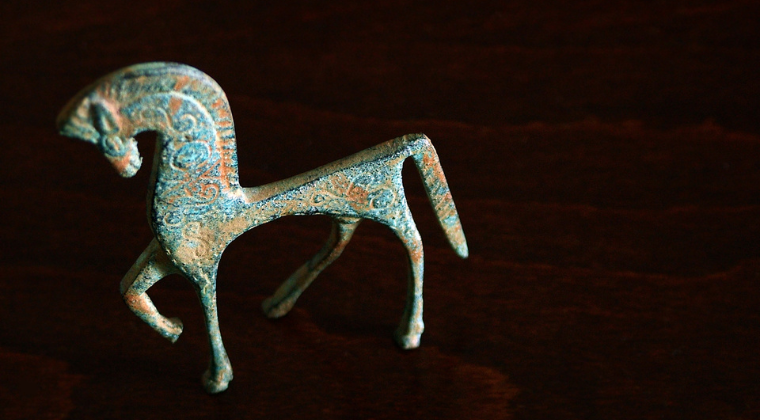Wine in Etruscan History: How They Were Influenced by Wine
The Etruscans were a mysterious people who inhabited the Tuscany region in Italy. Little is known about them, but we do know that they were greatly influenced by wine. Wine played a significant role in their religion and culture. In this blog post, we will explore the Etruscan history of wine and how it impacted their lives. We will also discuss the Etruscan winemaking techniques and some of their famous wines. So, if you're interested in learning more about Etruscan wine, keep reading!
Etruscan Horse
Who were the Etruscans?
The Etruscans were people who lived in central Italy during the Bronze and Iron Ages. They had their language and culture, which differed from the other peoples in the region. Unfortunately, little is known about them because they left very few written records behind. However, we do know that they were greatly influenced by wine.
Wine played a significant role in Etruscan religion and culture. It was used in religious ceremonies and was thought to have mystical powers. For example, the Etruscans believed wine could bring the dead back to life, so it was often used in funerary rituals. Wine was also considered a source of strength and power, so warriors often consumed it before the battle.
Where did the Etruscan people come from?
Archaeologists, historians, and linguists have debated the origins of the Etruscans for centuries. Three main theories have emerged: that they came from Anatolia in Southern Turkey (as proposed by the Greek historian Herodotus), that they were indigenous to the region and developed from Iron Age Villanovan society (according to another Greek historian, Dionysius of Halicarnassus), or that they originated in Northern Europe.
Halicarnassus, Bodrum - Turkey
The Ancient Etruscans were immigrants from Anatolia, now known as Turkey.
They are considered one of Italy's oldest indigenous people, having arrived on the Tyrrhenian coast sometime before 1000 BC and then moving eastward along the Italian coast towards the Adriatic Sea and Etruria (Latin Tuscia, Greek Tyrrhenia) in northern Italy.
The area known today as Tuscany, Umbria, and Latium was once called Etruria by the Etruscans who inhabited it. Furthermore, parts of Abruzzo and Marche were also under their influence.
WINE & ETRUSCANS
The Etruscans were known for their love of wine. The wine was so important to them that they even had a god of wine named Liber Pater. The wine was used in religious ceremonies and was seen as a symbol of wealth and status. In addition, the Etruscans believed that wine could bring them closer to the gods. This is why they placed such a high importance on wine.
The Etruscans were also skilled winemakers. They developed many innovative techniques that are still used today. For example, they were the first to age wine in barrels. They also developed the method of blending different wines to create new flavors. The Etruscans were truly ahead of their time in winemaking.
Famous Wine Regions
Some of the most famous Etruscan wines include the Falernian and the Chianti regions. The Falernian was a white wine that the Romans highly prized. It was said to have a sweet and fruity flavor. The Chianti was a red wine that was also very popular with the Romans. It had a dry and savory taste.
Tuscany
The Etruscans were also responsible for creating the first wine region in Italy. The region was called Tuscany and is still known for its excellent wines.
Many resources are available if you're interested in learning about Etruscan wine. Many books and articles have been written on the subject. You can also find several Etruscan wine producers that offer tastings and tours. So, if you're looking to explore Etruscan wine, there are plenty of ways to do it!
Thanks for reading, and I hope you enjoy learning about Etruscan wine as much as I did.
Cheers!
Alper, Advanced Sommelier




